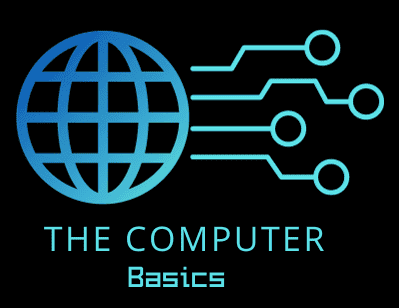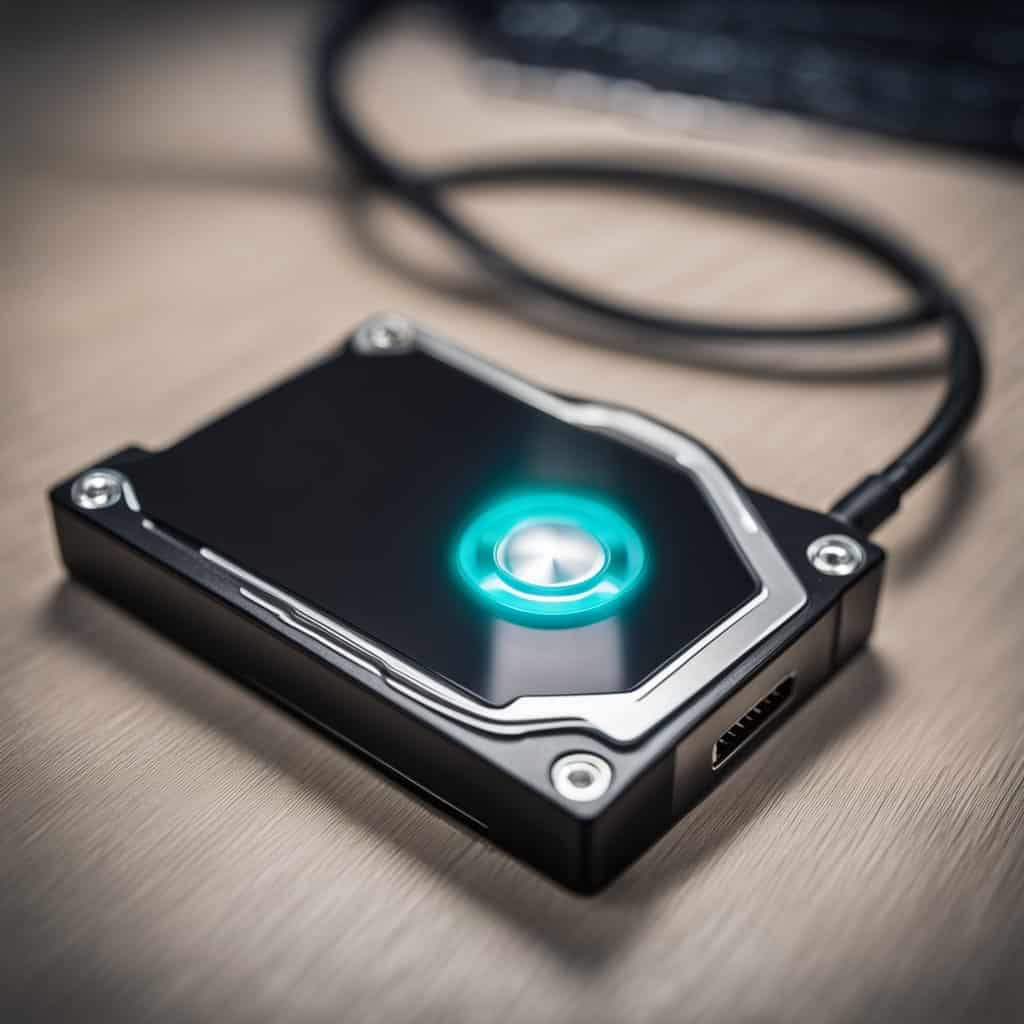When you connect an external hard drive to your PC, it’s supposed to expand your storage capabilities seamlessly. However, it can be particularly frustrating when doing so leads to unexpected computer freezes.
This issue can stem from various reasons, ranging from outdated drivers or operating systems to hardware conflicts or failing drive components.

If your computer freezes whenever you use an external hard drive, it’s important to ascertain the root cause. Often, the problem could be as simple as a poor connection due to a faulty USB port or cable, or it could signal more serious hardware issues.
Knowing how to troubleshoot and rectify this issue is crucial to restoring your system’s stability and ensuring the safety of your data.
Addressing this issue promptly ensures that you minimize the risk of data loss or potential damage to your computer or external hard drive.
Solutions might involve checking for software updates, running disk checks, or replacing hardware if necessary. Each step you take brings you closer to a smooth, uninterrupted computing experience.
Identifying Common Causes
When your external hard drive causes your computer to freeze, the culprit is usually found in hardware malfunctions or software issues. Identifying the root cause is critical to finding a resolution.
Hardware Issues
Faulty External Hard Drive: If your external hard drive has physical damage or internal failures, it can cause your system to hang. You might notice this if your drive has suffered a drop or an impact. Check for any unusual sounds coming from the drive as this can be an indicator of mechanical issues.
USB Cable and Port Problems: A defective USB cable or port can disrupt the connection between your computer and the external hard drive. Try using a different USB cable or connecting to a different port. If the problem persists, the issue might be within the drive itself.
Software Conflicts
Corrupt Partition: A corrupt partition on your external hard drive can lead to freezes. Your operating system may struggle to read or write to a drive that has a corrupted file system, resulting in the system hanging.
Operating System Issues: Sometimes, the operating system (OS) may have problems that cause conflicts with external hardware. Ensuring your OS is current with the latest updates can sometimes resolve these conflicts.
Driver Problems
Outdated Drivers: Out-of-date Drivers can lead to compatibility issues with your external hard drive. To address this, access the Hardware and Devices troubleshooter in your system settings, which can automatically detect and suggest fixes for driver-related problems.
Remember to keep your device drivers up to date. Manufacturers often release updates that improve stability and compatibility with various hardware peripherals.
Always download drivers from the official manufacturer’s website or trusted sources to avoid further complications.
Troubleshooting Techniques
When your external hard drive causes your computer to freeze, it’s crucial to follow specific troubleshooting steps. These techniques can often resolve the issue without requiring professional help.
Running Chkdsk Command
If you suspect file system errors or bad sectors on your external hard drive, the Chkdsk command is a useful tool. Opening Command Prompt as an administrator and typing chkdsk E: /f /r /x (where E is the drive letter of your external hard drive) will inspect and repair any issues found.
Utilizing the Disk Management Tool
Sometimes, the problem can stem from partition issues or unallocated space. To address these concerns, use the Disk Management tool by right-clicking ‘This PC’ and selecting ‘Manage,’ then ‘Disk Management.’
From there, you can check for any apparent errors or abnormalities with your external HDD, such as unallocated space or incorrect formatting.
Updating or Reinstalling Drivers
Outdated or corrupted HDD drivers can also lead to freezing issues. To update your driver, go to ‘Device Manager,’ find your external hard drive under ‘Disk drives,’ right-click it, and select ‘Update driver.’
If that doesn’t work, you may consider reinstalling the driver entirely by right-clicking the device and choosing ‘Uninstall device.’ Afterward, unplug your HDD and reconnect it, prompting Windows to reinstall the driver.
Data Protection and Recovery

Your data is precious, and protecting it requires a suite of strategies especially when faced with situations where your external hard drive freezes your computer.
From regular backups to the use of specialized tools, your focus should be on minimizing data loss and preparing for a recovery process when issues arise.
Backup Strategies
Consistent and Comprehensive: To safeguard your data, implement a robust backup strategy that includes regular intervals and covers all vital files.
Consider the 3-2-1 backup rule for critical data: keep at least three copies, use two different media types, and store one backup offsite. Cloud storage services or another external hard drive can serve as secondary storage locations.
- Daily Backups: Set up automated daily backups for files that change frequently.
- Weekly/Monthly Backups: Schedule less frequent backups for files that don’t change as often.
Using Data Recovery Tools
When a computer freeze indicates potential data loss, data recovery tools come into play. Start with reliable data recovery software capable of retrieving lost files without worsening potential damage.
Tools like ddrescue are designed to recover data from failing drives by copying data from the damaged media to another.
- Initial Scans: Run a scan with the tool to assess the breadth of data recovery needed.
- Safe Copying: Use software with fail-safes that avoid causing further damage while recovering your files.
Repairing Bad Sectors
Bad sectors can be physical or logical, impacting your drive’s performance. While physical bad sectors point to actual physical damage, logical bad sectors can often be repaired via software.
To fix bad sectors, you can use built-in tools like chkdsk on Windows or fsck on Linux. These can identify and isolate bad sectors, making the rest of the disk usable.
- Software Repair: Run the appropriate software tool for your OS to attempt a repair of logical bad sectors.
- Reformatting: If the drive is still functional, reformat it to prepare the disk for future use, but only after you’ve backed up or recovered existing data.
Enhancing External Hard Drive Performance

When your external hard drive freezes your computer, it’s often an issue of compatibility or settings. Enhancing its performance might require checking the drive for faults, adjusting how your system interacts with the storage, and setting the correct permissions.
Improving System Compatibility
If you’re facing issues with your external hard drive, it’s crucial to check for any faulty drive symptoms and whether your storage device requires a repair.
Use utilities designed for disk health checks to diagnose and address potential problems. For Windows users, ensuring your drive format is compatible with your system can prevent freezes and improve performance.
NTFS is typically preferred for Windows while exFAT works across different operating systems.
Adjusting Permissions and Settings
To prevent your external hard drive from freezing your computer, consider adjusting the permissions and settings.
First, connect your external hard drive and right-click on its icon, then select ‘Properties‘. Navigate to the ‘Security‘ tab where you’ll see a list of groups and user names. Click on ‘Edit‘ to change permissions.
Ensure that ‘Everyone‘ has ‘Full control‘ or at least the permissions necessary for your daily needs. This might improve the interaction between your device and the computer, reducing the chance of system freezes.

